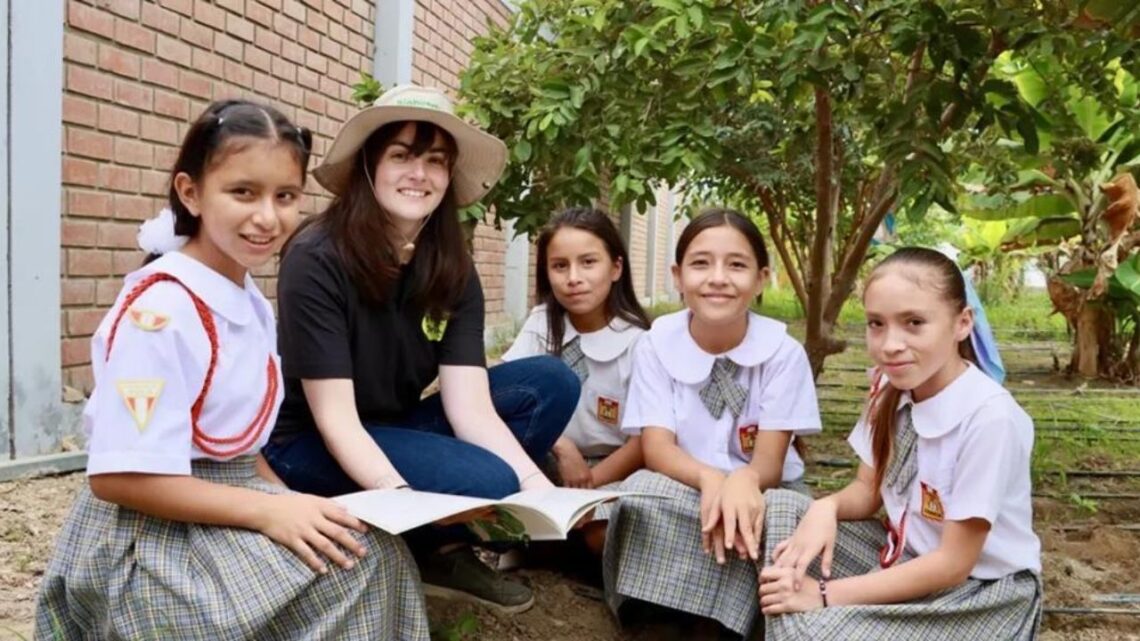In a vibrant and sustainable collaboration, Hortifrut and the Nature’s Pride Foundation (linked to Nature’s Pride and Berries Pride) have launched an inspiring school garden programme in the rural district of Chao, Peru.
This initiative, centered on forest-type gardens, aims to blend food education, agriculture, community engagement, and nutrition awareness for students, teachers, and families alike.
Over the past few years, the programme has expanded, reached multiple schools, and delivered measurable benefits.
Why This Partnership Matters
- Extending impact across the value chain: Hortifrut, as a global fruit producer, sees this as more than philanthropy — it’s part of a B Corp-style thinking to spread positive effects from production to consumption.
- Aligning with UN Sustainable Development Goals (SDGs): The project targets Zero Hunger (SDG 2) and Quality Education (SDG 4) by giving students access to fresh produce and learning opportunities in agriculture.
- Strengthening community resilience: Many rural schools lacked green spaces, fresh produce, or agriculture education; this programme helps fill that gap and nurtures a sense of ownership.
As Pía Walker, Sustainability Corporate Director at Hortifrut, stated: “It’s not just about fruit, but about opportunities to strengthen capacities in communities and contribute to their well-being in a concrete way.”
Coen van Iwaarden, on the Nature’s Pride Foundation Board, added: “Food education and environmental awareness are fundamental for a sustainable future.”
Programme Design & Implementation
1. Forest-Type Gardens: What They Are
Unlike traditional vegetable plots, forest gardens (or food forests) mimic mini ecosystems. They blend fruit trees, shrubs, herbs, and other edible plants in layers — creating resilience, diversity, and self-sustaining yield over time.
2. Schools & Scope
- Initially, five schools had fully implemented forest gardens.
- Now the programme is expanding to nine schools in the Peruvian region.
- The project area spans over 2,200 m² of food forest.
3. Workshops & Curriculum Integration
- Ten theory and practical workshops have been held, covering organic farming, composting, natural pollination, and nutrition.
- An educational manual has been co-developed to help teachers integrate forest gardens into their regular school curriculum.
- Schools form committees (teachers, parents, students, local officials) to steer ongoing maintenance and ensure continuity.
4. Technical Infrastructure
- Technified irrigation systems have been installed to support more efficient water use.
- Hortifrut and its agronomists provide seeds, saplings, materials, and expertise.
- The NGO Horizonte organizes implementation and training.
Impact & Reach
This partnership has already generated tangible outcomes:
| Indicator | Value / Description |
|---|---|
| Number of students who received lessons | Over 1,000 |
| Number of beneficiaries (students, families, teachers) | Nearly 3,500 have consumed garden produce |
| Total area of food forest gardens | Approximately 2,200 m² |
| Schools with implemented gardens | 5 fully implemented, expanding to 9 |
| People impacted by early vegetable garden projects | 2,583 (students, parents, teachers, principals) |
| Workshops held | 10 theory + practical sessions per site |
These numbers reflect not just a pilot, but a scaling effort.
Challenges & Lessons Learned
- Leadership changes in schools
One school lost continuity after turnover among principals and teachers, which weakened garden care. - Seasonal breaks & maintenance
During school holidays, garden upkeep dropped due to insufficient community-school coordination. - Need for stronger capacity building
The newer phase emphasizes deepening knowledge, not just setting up gardens, so that local actors can sustain them independently.
The response: more emphasis on teacher and parent training, formal support structures, and embedding garden maintenance in school policies.
Expansion & Future Plans
- The programme is scaling from 6 to 9 schools in the current cycle.
- There’s intent to embed forest gardens into the formal curriculum so gardens become part of daily lessons.
- Emphasis will grow on local autonomy: parents and teachers running gardens without external help.
- Monitoring and evaluation systems will be strengthened to track long-term outcomes in nutrition, attendance, learning, and community well-being.
The Partnership Blooms: Hortifrut & Nature’s Pride Introduce School Gardens in Peru initiative is a compelling example of corporate-community synergy, transforming vacant school spaces into living classrooms of sustainability.
With forest gardens, hands-on workshops, strong stakeholder committees, and teacher empowerment, the programme is already impacting thousands and steadily expanding.
As the project scales to more schools and cements its place in school curricula, it holds promising potential — not just for nutrition and education, but for long-term community resilience, environmental stewardship, and social cohesion.
If maintained well, such garden programmes can become self-sustaining pillars of rural education, inspiring future generations to grow knowledge as well as food.









